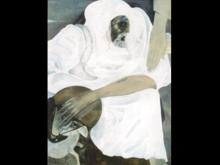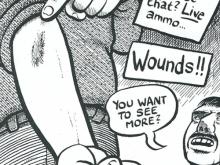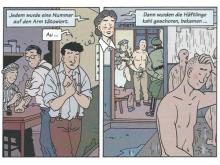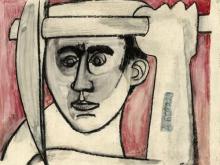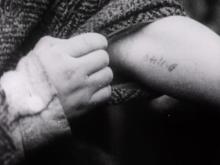Am Ende kommen Touristen
AM ENDE KOMMEN TOURISTEN, Robert Thalheim, Germany 2007
AM ENDE KOMMEN TOURISTEN (2007) tells the story of Sven, a young German who volunteers at the Auschwitz memorial in Poland. The film demonstrates how past and present fuse and offers a new perspective on the obstacles and challenges of Holocaust memory in present-day Europe. Iconic images referring to Holocaust memory are constantly presented in the film from unforeseen and irritating angles and constitute topic lines that demonstrate that this history is an integral part of German-Polish relations and the European social fabric.
An important part of Sven’s journey refers to his relationship with a Polish Holocaust survivor. In this scene, director Robert Thalheim enacts the setting of a survivor conversation, in which he critically reflects on stereotypical presumptions (and prejudices) of the young audience as well as the teacher’s inability to moderate the situation properly. A student asks the survivor (indirectly) if he got a number in the camp that was tattooed on his arm. The survivor confirms and then becomes a subject of inspection. Dissapointed, the young Germans note that the number is barely visible anymore. In turn, the survivor replies: “I did not renew it”.
Interestingly and in tune with the visual concept of the film, the Number Tattoo is not shown. By doing so, Thalheim emphasises that the number already became a visual super-icon. Viewers will immediately evoke the image in their minds (including the references to the historical footage from the students in Auschwitz). This indirect non-use reflects the iconic character of the image by evoking it through merely showing the gesture of presenting the tattoo.
